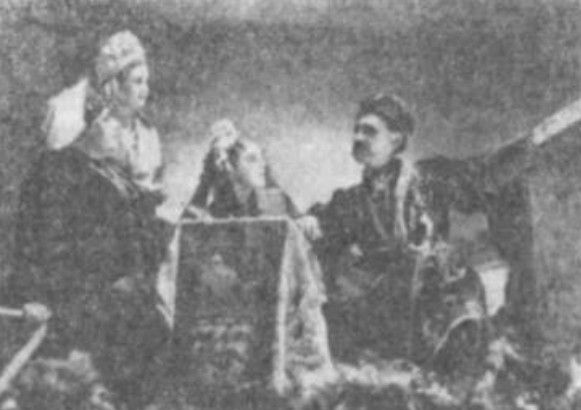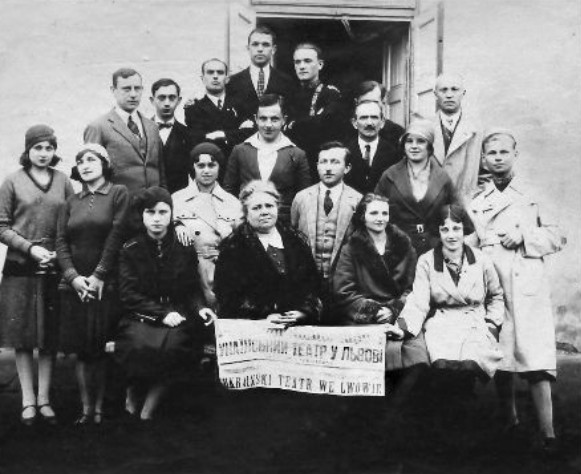Tobilevych Theater
Tobilevych Theater [Театр ім. І. Тобілевича; Teatr im. I. Tobilevycha]. One of the foremost theaters in Western Ukraine, established in 1928 as a stationary theater in Stanyslaviv, with a cast from a drama circle (active in 1919–28) and a predominantly musical repertoire. In 1929–30 it became a touring theater under Mykola Bentsal and Volodymyr Blavatsky. Bentsal was a director of the realist school, and Blavatsky was a proponent of the Berezil experimental style. Besides Ukrainian classics of the 19th century, contemporary European dramas, and operettas the Tobilevych Theater successfully staged new heroic-romantic plays, including Mazepa (an adaptation of Bohdan Lepky’s trilogy), Hory hovoriat’ (The Mountains Speak, based on Ulas Samchuk’s novel), and Yurii Horlis-Horsky’s Kholodnyi iar. Blavatsky departed with part of the cast in 1932 to form the Zahrava Theater, and the Tobilevych Theater continued under Bentsal and Yosyp Stadnyk (1933–5) until 1938, when it and the Zahrava Theater combined to form the Kotliarevsky Theater (later the Lesia Ukrainka Theater).
BIBLIOGRAPHY
Revuts'kyi, Valeriian. V orbiti svitovoho teatru (Kyiv, Kharkiv, and New York 1995)
[This article originally appeared in the Encyclopedia of Ukraine, vol. 5 (1993).]

